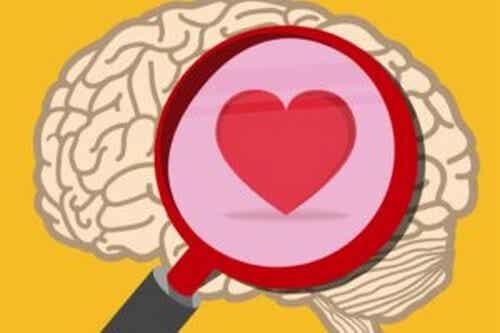Everyone, more or less, is afraid of the unknown, but for some it is a force that paralyzes and prevents us from moving forward. Where does this fear arise and how can we get rid of it?

Last update: October 27, 2020
Fear is one of the most primitive and useful emotions one can experience. It has always allowed mankind to face dangerous situations or to escape, thus facilitating survival. At the same time, having overcome a threat allows us to obtain valuable information: we will always remember that danger and how we overcame it. Some fears, on the other hand, feed on a lack of information. One of these is the fear of the unknown.
Fear of the unknown is a universal and intrinsic feeling, according to science it is one of the primary fears. Uncertainty is part of life: in principle we cannot predict events.
Some of us are better able to cope with this emotion, evaluating or elaborating possible solutions. Others instead, they cannot overcome it and this causes an emotional block.
The oldest and strongest emotion of man is fear, and the oldest and strongest fear is that of the unknown.
– Lovercraft –
Fear of the unknown
Psychologists also call it intolerance to uncertainty. This is how it is defined the tendency to be afraid of a situation or object about which we do not have enough information, therefore perceived as a danger.
In other words, we are afraid of an event or a stimulus when we do not know its repercussions; this is accompanied by the feeling that they will not be pleasant.
The origin of this fear, taking into account some individual differences, is evolutionary. Our ancestors were exposed to many dangers, and although they learned the lesson, entering unknown areas meant putting themselves at great risk. Apparently, therefore, the brain is programmed to be afraid of the unknown.
Uncertainty would be encoded in the brain through the same neural system. When we are faced with something new, one of the first filters through which information passes is to decide whether it is a threatening situation or not.
To assess the threat, our neural network accesses the storehouse of past memories and experiences. If it doesn't find any information, it classifies the situation as possible danger.
Consequences
According to some research, fear of the unknown is linked to the activity of the amygdala and hippocampus. The pessimism associated with making mistakes also increases and the behavioral inhibition system kicks in. The result is that fear and negativity paralyze us, making us run away from new situations.
Experiencing this type of fear was, and still is, adaptive behavior when it causes us to act cautiously in the face of potential danger. However, the intensity of the fear can compromise other activities. For our ancestors, it was a question of seeking food or shelter. Today, to seek new opportunities or meet new people.
Apparently, we prefer to accept the discomfort of the limitations that come with fear, rather than resist and face it. According to Canadian research, this fear is linked to other psychological disorders: anxiety, social phobia, obsessive-compulsive disorder, post-traumatic stress, substance addiction, depression, etc.
5 strategies to overcome the fear of the unknown
Intense fear of the unknown can be both the cause and the consequence of other psychological disorders and it can prevent a normal life in the personal, work and social fields.
In this case, psychotherapy could be a valuable help. In particular, cognitive behavioral therapy is one of the best options, as it helps identify and change the thoughts that are causing the discomfort.
If the fear is not too strong, the following guidelines can help you master it, encouraging us to explore unfamiliar terrain.
Recognize and accept fear
The first step is understand that it is a natural and common emotion. It is part of life and generally does not rely on rational thoughts. It is also necessary to distinguish the generic fear from a fear that conceals something more specific. For example, the fear of dying.
Is there a concrete reason?
Fear often comes from a negative experience. However, it is worth considering whether the fear of the unknown is the result of learning or education.
Question the fear of the unknown
Trying to dismantle fearful thoughts is one of the most powerful strategies. Try asking yourself, “What evidence do I have to support my fear? What evidence do I have that something bad will happen? What's the worst that can happen to me? ”.
In the same way, bring to mind three examples where you faced uncertainty satisfactorily it helps to calm fear and anxiety.
We must accept that there is also failure
In situations where we cannot know what will happen, controlling expectations is one of the variables that takes on the most weight in emotional management. Making mistakes is not that bad and in most cases the consequences are not irremediable.
On the other hand, the mistake takes on a true meaning when we learn; finally, the novelty can be really exciting if we allow ourselves to experiment.
Fear of the unknown is a natural emotion that sometimes keeps us out of trouble. But it can also prevent us from achieving important goals or being surprised by life. Intelligent emotional management will allow us to use this emotion in our favor.


























